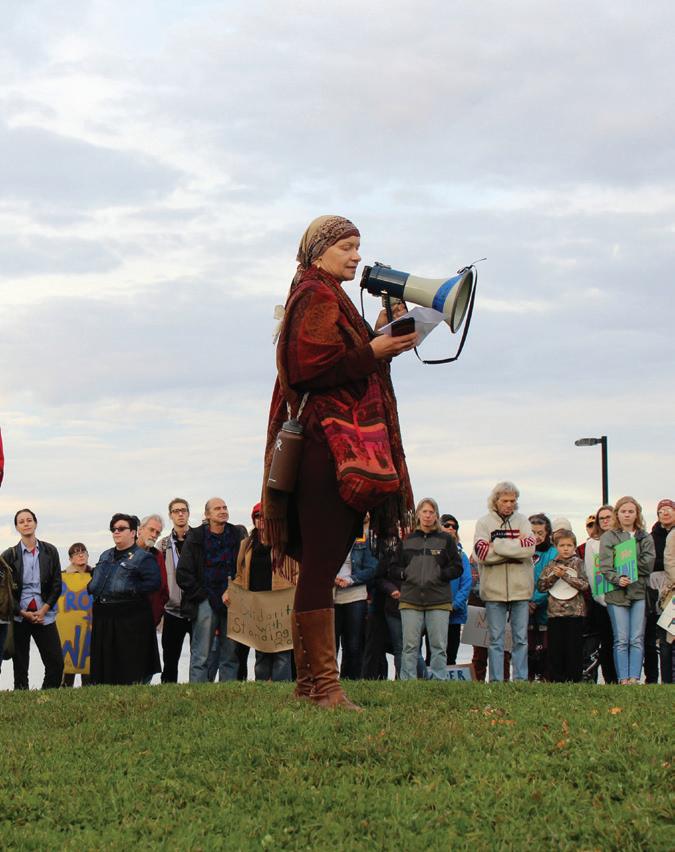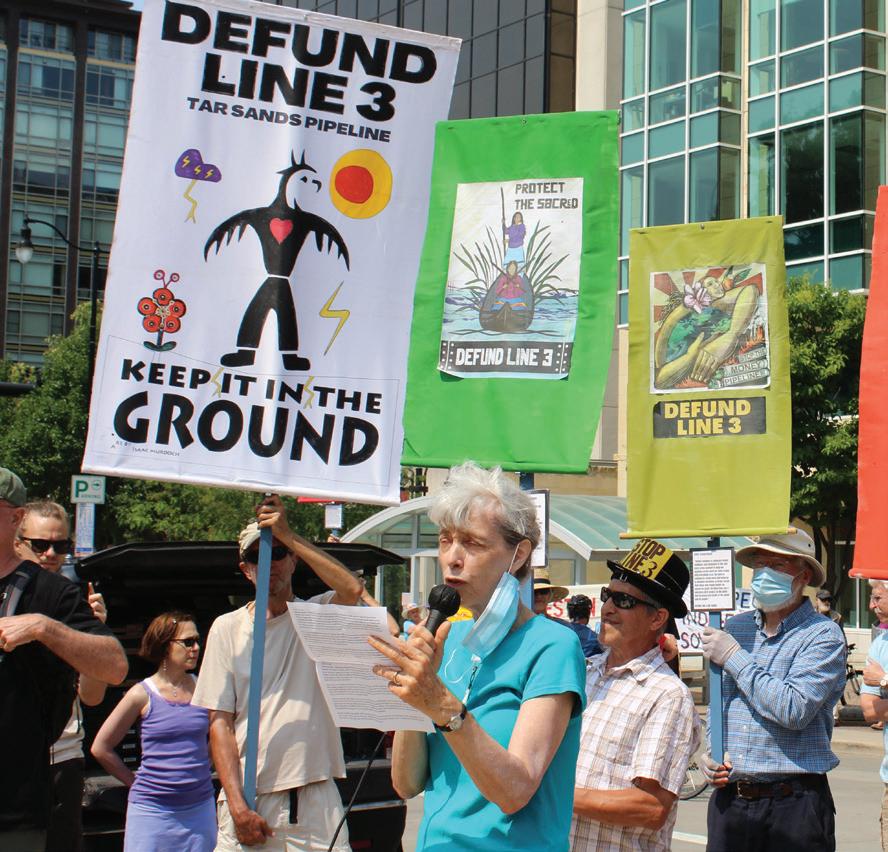
2 minute read
A VISION FOR OUR FUTURE
WHAT IS CLIMATE JUSTICE?
Systemic racism and economic inequality make BIPOC (Black, Indigenous, people of color) and low income communities more vulnerable to the adverse effects of the climate crisis. These impacts will only worsen unless action is taken.
Advertisement
350 Wisconsin follows the lead of BIPOC and frontline groups, and advocates for equitable policies and programs that center these communities in their design and outcomes.
HOW ARE COMMUNITIES AFFECTED?
» Health impacts. BIPOC and low income communities are often exposed to higher levels of pollution from oil refineries, coal plants, and other facilities that have historically been placed in their neighborhoods. This contributes to worsening asthma, elevated cancer rates, and other health conditions in those neighborhoods.
» Forced migration and property loss. Low-income and BIPOC communities are more likely to live in areas vulnerable to flooding or extreme weather. Rising sea levels and other consequences of the climate crisis are making many areas uninhabitable, with millions forced from their homes.
» Urban heat islands. Low income and BIPOC neighborhoods are more prone to localized extreme heat caused by dark pavement and a lack of trees and green spaces.
» Unequal access to resources. As climate change threatens agriculture and supply chains, the accessibility and affordability of necessities become much more challenging to underserved communities.
» Lack of investment. Wealthier communities are much more likely to have access to climate solutions such as public transit, rooftop solar, updated electrical grids and green infrastructure.
» Energy burden. Low-income housing is far less likely to be energy-efficient, and energy accounts for a much higher share of household expenses.
“We worked with 350 Wisconsin on their Solidarity Saturday session on Environmental Racism. I really appreciated their commitment to learning and sharing, and their understanding of the importance of centering the wisdom of people most impacted. Their dedication to justice is inspiring.”
Working In Coalition
350 Wisconsin works to establish meaningful relationships, trust, and collaborations with a diverse range of communities and organizations throughout Wisconsin and beyond. We amplify the concerns of our BIPOC allies and incorporate their goals into our own work, recognizing the importance of learning from those disproportionately impacted by the climate crisis. For example, we work closely with the Line 5 coalition in northern Wisconsin and follow the lead of Indigenous allies to build statewide opposition to dangerous oil pipelines.
Climate Justice In Our Campaigns
Our Climate Justice team includes 50+ committed activists who highlight issues of climate and racial justice to our general membership and build solidarity with BIPOC, frontline, and low-income communities.
350 Wisconsin’s campaigns keep climate justice as a central aspect of all of our work. Some examples of how climate justice is reflected in our campaigns:

» Engaging with Madison’s alders to ensure that climate justice remains central to all city policies and practices.
» Publishing studies on environmental justice, including a report on the disproportionate energy burden on disadvantaged households in Madison.
» Advocating for the Wisconsin Housing and Economic Development Authority (WHEDA) to consider energy efficiency when awarding federal tax credits for low income housing.
» Pressing the Public Service Commission to prioritize support for low income communities via Focus on Energy (WI’s energy efficiency and renewable resource program).
» Collaborating with the Bad River Band of the Lake Superior Chippewa to protect their land rights and water resources from oil pipeline threats.
350 Wisconsin’s Climate Justice Organizer works with the Climate Justice team to ensure that we dedicate appropriate resources and effort toward building and supporting multi-racial coalitions, along with supporting diversity, equity, and inclusion within our organization.






